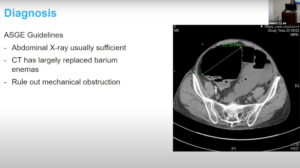NEW YORK (Reuters Health) – A new study suggests that, in a real-world setting, adjuvant chemotherapy in adults over age 65 with stage II colon cancer and high-risk clinical features does not improve survival.
Any possible survival benefit is likely less than 2% at 5 years, the study investigators say.
“This lack of benefit must be considered in treatment decisions for similar older adults with colon cancer,” Dr. Erin S. O’Connor and colleagues from the University of Wisconsin in Madison write in the Journal of Clinical Oncology.
In their paper, Dr. O’Connor and colleagues note that adjuvant chemotherapy is typically considered after resection of stage II colon cancer characterized by poor prognostic features, including obstruction, perforation, T4 stage, inadequate nodal resection, and peritumoral lymphatic/venous invasion, and poor histology.
Yet, there is no evidence that these characteristics, although associated with worse outcomes, predict a good response to adjuvant chemotherapy.
Using the Surveillance, Epidemiology and End Results (SEER) database, Dr. O’Connor’s team determined the overall survival benefit of adjuvant chemotherapy in 43,032 Medicare beneficiaries who underwent colectomy for colon cancer; 6,234 had stage II colon cancer with no poor prognostic features, 18,613 had stage II colon cancer with any poor prognostic features, and 18,185 had stage III colon cancer.
Overall, about 20% of the 24,847 patients with stage II colon cancer received adjuvant chemotherapy, with no difference between risk groups. As expected, survival at 5 years was significantly lower in stage II colon cancer patients with poor prognostic features (57% vs. 69% in those without poor prognostic features).
According to the investigators, adjuvant chemotherapy failed to improve survival in patients with stage II disease, regardless of the presence or absence of poor prognostic features (hazard ratios 1.03 and 1.02, respectively).
A survival benefit from adjuvant chemotherapy was observed only in patients with stage III disease (hazard ratio 0.64), 57% of whom received adjuvant therapy.
In a linked commentary, Dr. Neal Meropol, from University Hospitals Seidman Cancer Center in Cleveland, Ohio says this analysis “should discourage routine use” of adjuvant treatment in older patients with stage II colon cancer.
However, it does not exclude a potential benefit of adjuvant treatment in patients younger than age 65, he notes.
J Clin Oncol 2011.




